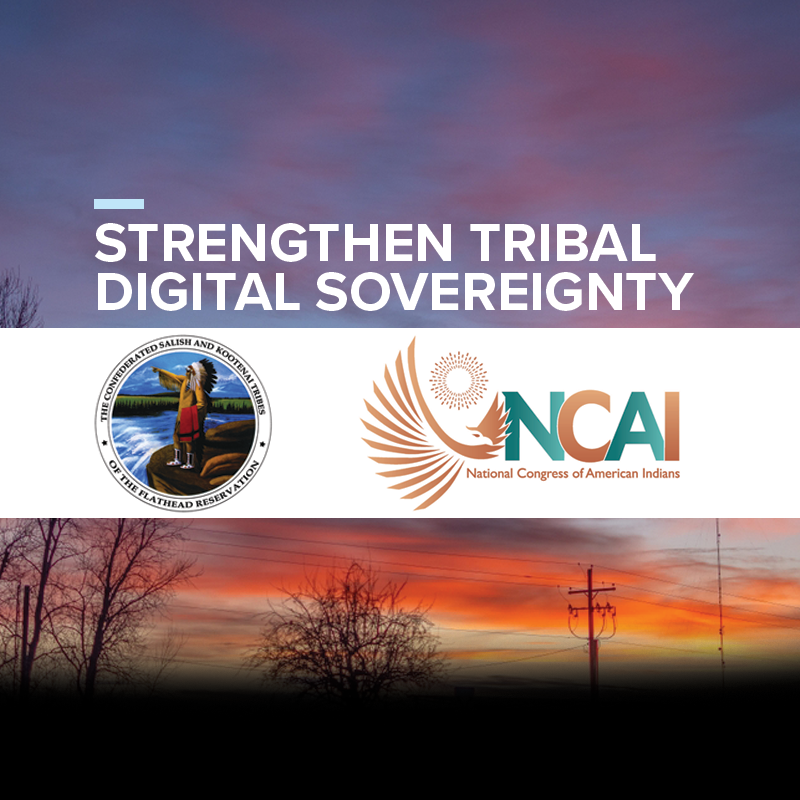
On May 6, 2024, the Confederated Salish and Kootenai Tribes (CSKT) and the National Congress of American Indians (NCAI) filed an amicus brief with the U.S Court of Appeals for the Ninth Circuit in Alario v. Knudsen, highlighting how Montana’s TikTok ban law infringes upon tribal sovereignty and tribal jurisdiction. CSKT and NCAI voiced their objection to the ban’s enforcement design, as it can lead to the ban applying on tribal lands, where the law does not apply. CSKT and NCAI emphasized that Tribal Nations are the proper sovereigns to exercise digital sovereignty on their lands, and that states should be working to support Tribal Nations’ exercise of digital sovereignty and to close the digital divide, as wide gaps remain in digital infrastructure and services in Indian Country.
Signed into law by the governor of Montana on May 17, 2023, the Montana ban (SB 419) imposes civil penalties on “entities” (defined as mobile app stores or TikTok), for instances of TikTok use within the “territorial jurisdiction” of Montana. Entities may be fined an additional $10,000 each day the violation continues.
While Tribal Nations are not within the “territorial jurisdiction” of Montana, the record shows that the ban is likely to be enforced in instances of TikTok use on Tribal lands. This is because TikTok tracks users’ locations by IP addresses, which is an imprecise geolocation method, especially in rural areas, such as many tribal reservations. Thus, a user may be detected as being within Montana’s jurisdiction when the user is actually on tribal lands.
NCAI and CSKT submit that the ban will affect TikTok use on tribal lands, stepping out in front of Tribal Nations in exercising digital sovereignty. Tribal Nations must be able to exercise digital sovereignty to address the digital divide and to regulate the critical matters involved in a modern, digital world, such as data privacy, in accordance with the unique needs of tribal communities. Many Tribal Nations across Indian Country are still building infrastructure and developing regulations needed to offer high speed internet to tribal citizens, protect tribal data, or to exercise other regulatory authority in the digital realm. Collaboration between states, Tribal Nations, and the federal government is necessary to aid in this effort.
“Tribal Nations have the capability to tackle digital inequity and are the proper sovereigns to determine their policies for their communities,” said Native American Rights Fund (NARF) Staff Attorney Beth Margaret Wright. “Tribal Nations already exercise authority in this area by building broadband infrastructure, providing crucial telehealth, telework, and telelearning opportunities to their members, and protecting private tribal data.”
NARF represents the CSKT, with tribal headquarters in Pablo, Montana, and NCAI, a representative congress of American Indians and Alaska Natives, headquartered in Washington, D.C.
“As economic development and the health and well-being of Tribal Nations becomes increasingly dependent upon digital infrastructure and resources, we must step up to defend tribal sovereignty,” said NARF Staff Attorney Jason Searle. “Tribal Nations are exercising digital sovereignty, and states should act in support of that.”
More blog posts

